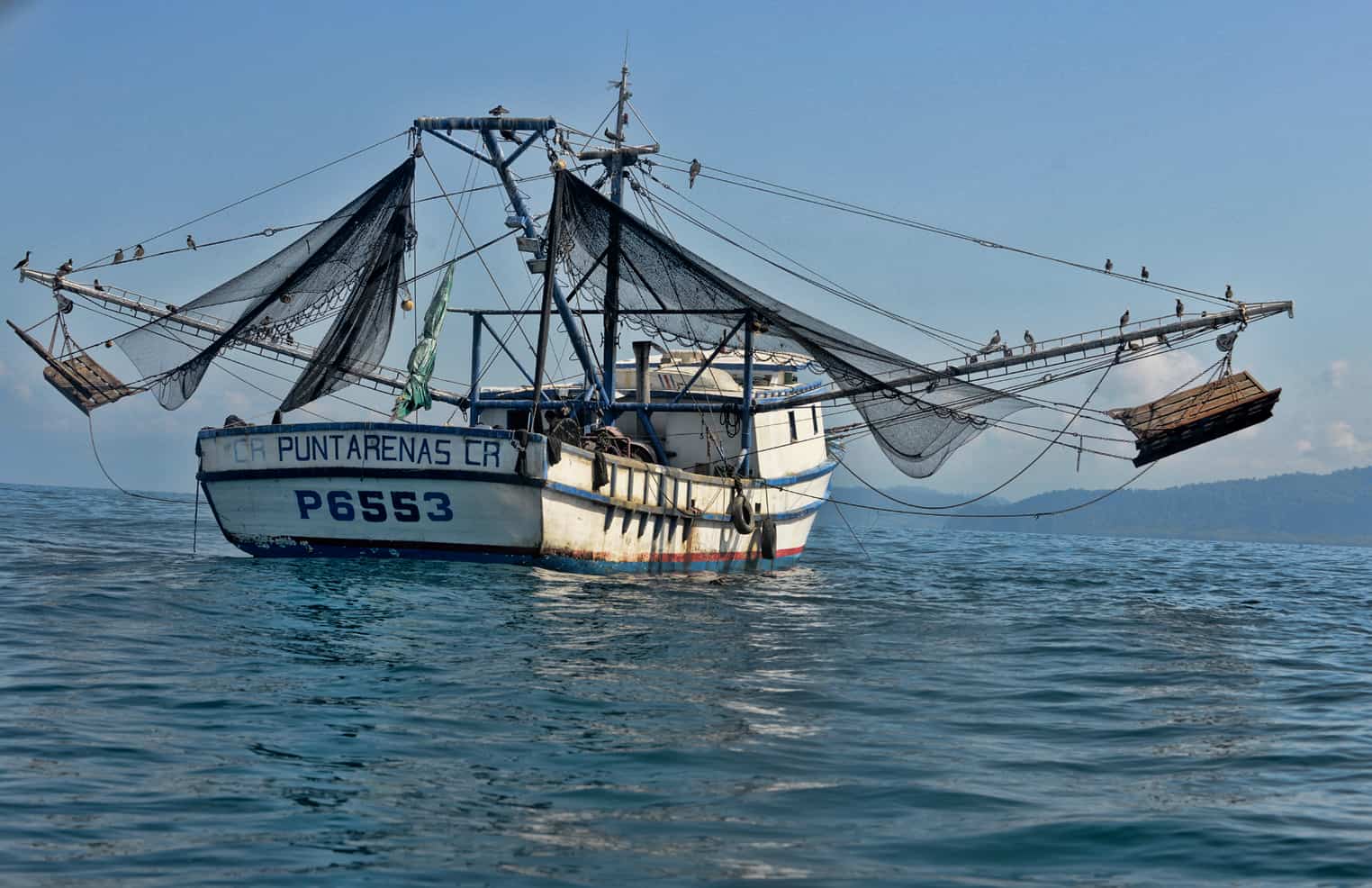Facing opposition from lawmakers and pressure from environmental groups, government fishing authorities pulled a controversial shrimp trawling bill from the legislative agenda last week. If passed, the bill would have reinstated shrimp trawling in Costa Rican waters.
This marks the second attempted return of shrimp trawling in the Legislative Assembly since a Constitutional Court (Sala IV) ruled in 2013 that the damage caused by the fishing practice violated Costa Ricans’ right to a clean environment. The court order banned the government from renewing trawling licenses unless new technology could limit the incidental capture of non-shrimp species — known as bycatch — and make the practice more sustainable. The last active licenses are set to expire in 2019, without legislative action.
The Bill for the Development and Sustainable Exploitation of Shrimp in Costa Rica was drafted and submitted by the executive branch, which declared the bill a priority for consideration before the close of the extraordinary sessions at the end of April.
In an effort to comply with the Sala IV ruling, the government put 32 sustainability criteria into the bill, and proposed new studies to assess the shrimp population. Trawlers that meet the criteria would be allowed to renew their licenses, and the number of available licenses would be determined by the studies.
Government officials who support the bill say it is a crucial step in fighting widespread unemployment on the coasts.
“A big step for this government in the fight against coastal poverty, ecological damage and democratic access was going to be to develop regulations for shrimp fishing,” said Gustavo Meneses, the president of the Costa Rican Fisheries Institute (INCOPESCA).
According to fishing industry leaders, before the ban, shrimp trawlers employed as many as 360 people.
Despite the executive’s enthusiasm for the bill, lawmakers from both the National Liberation Party (PLN) and the Broadfront Party (FA) refused to consider it, citing environmental concerns. According to Meneses, the Solís administration pulled the bill in order to renegotiate with lawmakers before resubmitting it. The administration still hopes to push the bill through before the close of the legislative session.
In addition to lawmakers, environmental groups and several traditional, small-scale fishing organizations have also come out against the bill in recent weeks.
“In our opinion, pulling the bill was necessary,” said Viviana Gutiérrez, political manager for the Costa Rican branch of the marine conservation organization, MarViva. “It shows that the bill did not have any viability, technically or politically.”
Marine conservation NGOs that oppose the bill point out that most of the sustainability measures listed in the bill were already required for shrimp trawlers before the Sala IV ruling. The other requirements — like the use of fish excluder devices and depth restrictions — have not yet been studied for effectiveness.
Studies to evaluate their effectiveness do not yet have funding, according to the bill.
Opponents have also taken issue with the year-long roundtable under which the bill was created. While the roundtable initially included environmental groups and small fishing organizations, they had all dropped out by the end of the dialogue.
Following their exit, two fishing groups filed an ethics complaint against the involvement of Vivienne Solís, the president’s sister, in the talks. According to Meneses, her place at the talks was due to a previous contract between INCOPESCA and her environmental development NGO, CoopeSoliDar. The contract preceded the election of Solís’ brother Luis Guillermo Solís to the presidency in 2014.
In the eyes of the government, the roundtable was a success. Not only did the discussions produce a bill, Meneses said, they also gave the government a venue to discuss other projects like ocean zoning and converting shrimp trawlers for some other kind of fishing.
“In this process, we involved so many different people,” Meneses said. “It is an injustice that the lawmakers did not have the decency to consider a bill that actually involved the people affected by it.”






